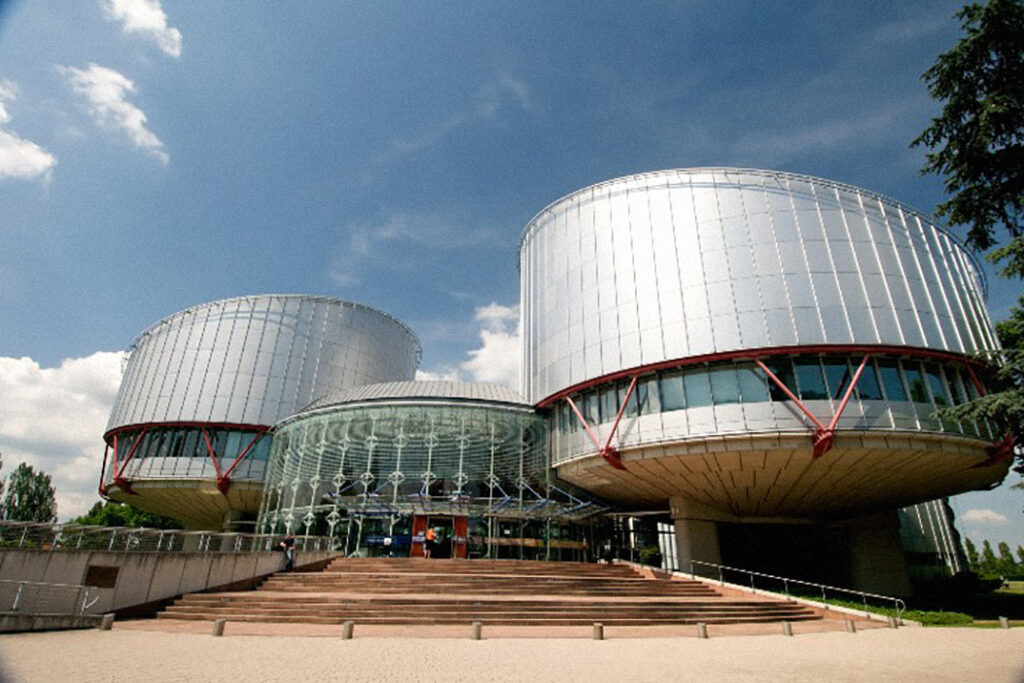The European Court of Human Rights (ECHR) has ordered Russia to pay compensation for the torture of 13 men from the North Caucasus between 2004–2006.
On 9 February, the court issued a joint judgement in the case of Uspanov and others v Russia, ordering a total of €798,100 ($972,000) in compensation be paid to 13 applicants from the North Caucasus.
According to the court’s ruling, Russia was responsible for torturing the applicants, refusing to investigate reports of violence, unfair imprisonment, and unfair trials.
The court heard harrowing testimony of torture committed by Russian security forces, including strangulation, electrocution, sexual violence, and rape threats. In one case, a victim’s sister was brought before the victim where an officer of the Russian Federal Security Service (FSB) threatened to rape her in front of him.
The victims reported the torture took place during preliminary investigations into their cases in an attempt to force them to confess.
Eight of the victims came from Chechnya, three from North Ossetia, and one each from Kabardino-Balkaria and Karachay–Cherkessia. They were all sentenced by Russian courts to between 6 months to 24 years in prison.
To date, only two have been released — Roman Gastemirov, who received the shortest sentence of six months, and Safar Laypanov who was sentenced to seven years.
The victims were represented at the ECHR by lawyers from rights groups Memorial, the Committee against Torture, the Stichting Justice Initiative, and the European Human Rights Advocacy Centre (EHRAC).
‘He swore he would rape his sister’
Aslanbek Vitrigov, Aslan Agamerzayev, and Ayub Tuntuyev (who is referred to in the court files as Adam Tuntuyev) were accused in Russia of orchestrating a car explosion in the village of Znamenskoye in Chechnya’s westernmost Nadterechny District on 19 July 2005.
Ten police officers, one Federal Security Service (FSB) officer, and three local residents were killed in the explosion.
According to the court’s statement of facts, Vitrigov and Agamerzayev both 25, were abducted by the security forces from a pasture where they were grazing their cattle on 20–21 July 2005. According to the court, they were then tortured for two weeks in a local police station.
According to the ECHR, Vitrigov, who was later sentenced by a Russian court to 17 years and six months in prison, was beaten and strangled by police and FSB officers. The court heard how officers squeezed his penis with pliers, beat him with a plastic bottle filled with water, suffocated him with a plastic bag, electrocuted him, kicked him, and hit him with truncheons.
After a week of torture and Vitrigov’s consistent refusal to plead guilty, the court heard how an FSB officer ‘swore on the Koran that he would rape [his] sister’, following which she was brought to the interrogation room with the officer accosting her and threatening to undress her. Vitrigov then signed a confession.
Didn’t live to hear the verdict
One of the victims, Ayub Tuntuyev from Chechnya, did not live to see the verdict.
Tuntuyev was an employee of the Anti-Terrorist Centre in Chechyna’s fifth-biggest city of Argun, and voluntarily showed up at the Nadterechny District police department when summoned, where he was detained.
The court found that Tuntuyev was subjected to torture including rape threats from an interrogating officer.
Tuntuyev died in a penal colony in Russia’s Vladimir Oblast in 2019. His relatives reported traces of violence on his body and speculated that he may have been murdered by prison guards.
Back in 2016, he reported being tortured and threatened by the FSB, who were demanding he take the blame for an attack on Russian servicemen during the second Russian–Chechen war.
The war (1999–2009) was an armed conflict between the forces of the Chechen Republic of Ichkeria and troops of the Russian Federation fought on the territory of Chechnya and bordering regions of the North Caucasus following the invasion of Russian troops into territory controlled by Ichkeria.
Chained to a hot gas pipe
Ismail Mutayev was removed from a bus en route from the Chechen village of Kurchaloy to the city of Gudermes on 14 January 2004. He was abducted by local security forces who tortured him for a week.
The court heard how he was chained to a hot gas pipe, as a result of which his back, shoulders, and right arm were burnt. He was tortured every consecutive day. When he was losing consciousness, the officers would pour cold water over him.
Under torture, Mutayev was forced to sign a confession to his participation in hostilities on the side of Chechnya. He was sentenced to 22 years for terrorism.
In 2001 and 2002, the security forces abducted Mutayev’s brothers from their family home in Gudermes. One brother was killed and the other one went missing.
In 2002, Mutayev’s mother was also kidnapped and held for several days by officers of the Vostok Battalion, a special unit of the military intelligence agency GRU in Chechnya. His father died in 2002 after facing continual pressure from the security forces.
Twenty-two years for ‘terrorism’
Umar Khadziyev, Alikhan Ozdoyev, and Ruslan Tsurov, three ethnic Ingush people from North Ossetia’s Prigorodny District, were taken to a police station in North Ossetia’s capital, Vladikavkaz, for their documents to be checked on 21 July 2006.
According to Memorial, who represented the three in court, officers of the regional department for combating crime (RUBOP) accused them of placing an explosive device in their car.
‘The officers beat the men with truncheons, electrocuted them, strangled them, put plastic bags over their heads, burnt them with cigarettes, demanding they confess to the crime’, Memorial stated. All three were sentenced from 18 to 22 years for terrorism.
For ease of reading, we choose not to use qualifiers such as ‘de facto’, ‘unrecognised’, or ‘partially recognised’ when discussing institutions or political positions within Chechnya in the 1990s and 2000s. This does not imply a position on its status.




 12 February 2021
12 February 2021



